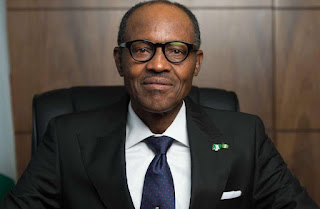This explanation was offered Sunday by Laolu Akande, the Senior Special Assistant on Media and Publicity in the Office of the Vice President, during a chat with the journalists.
According to him, the plan of the Buhari presidency is not only comprehensive but has taken care of some of the factors that led to the failure of previous poverty alleviation schemes put in place in the past.
“One of the major difference here is that the social intervention programme such as the Conditional Cash Transfer, CCT, would be a direct transfer of N5000 monthly to the extremely poor among us,” Mr. Akande said.
“And this is a safety net that several advanced nations have put in place long time in their history often at times of economic challenges.
“The money would be paid directly to the people concerned on the condition of school enrollment and immunization. This way we are expanding school enrollment and also assuring physical well-being.Besides, he explained that the School Feeding Programme, another aspect of the social intervention programmes, would be entirely homegrown, unlike previous federal government plans in the past which relied on importation.
He said the homegrown school feeding programme will commence in public primary schools in the new year, providing adequate nutrition to school children, promoting local farming, boost agriculture and create jobs and wealth locally.
“We have experts working in the presidency, collaborating with experts from global bodies who together bring to bear international best practices working on how best to implement these programmes.
“I can tell you that no sooner President Buhari resumed work, that many of this experts have been meeting and planning on how best to implement these plans. We are not talking here of something hurriedly put together or a programme where some consultants would take the huge chunk of the resources.
“Also, as part of the half a trillion Naira to be spent, there is in the budget proposals a provision of no fewer than one million jobs in 2016, including 500,000 graduate-youths to be engaged as teachers and another 500,000 non-graduate unemployed people who would be trained as artisans, making a total creation of about one million direct jobs,” Mr. Akande said.He added that the presidency is aware of past failures in the poverty alleviation efforts and determined not to repeat them.
“As the President disclosed during the budget speech, he has asked the Vice President to coordinate the programmes and I can tell you that serious work is already apace,” Mr. Akande added.He reiterated that for the first time in Nigeria’s budgetary history, the federal government would be directly intervening in lifting people out of poverty through a series of measures already proposed totaling N500B, or about nine per cent of the budget itself.
“Through these measures and for the first time, the budget is paying attention to the problem of poverty in a proper and direct way.”Besides, another one million extremely poor and disabled Nigerians would also benefit from the first phase of the Conditional Cash Transfer, CCT Scheme proposed in the 2016 appropriation bill to enable them live decently.
There will also be the provision of affordable, very low cost loans to market women and artisans to enable them enlarge and expand their trades, he added.
Credit: Premium Times

No comments:
Post a Comment